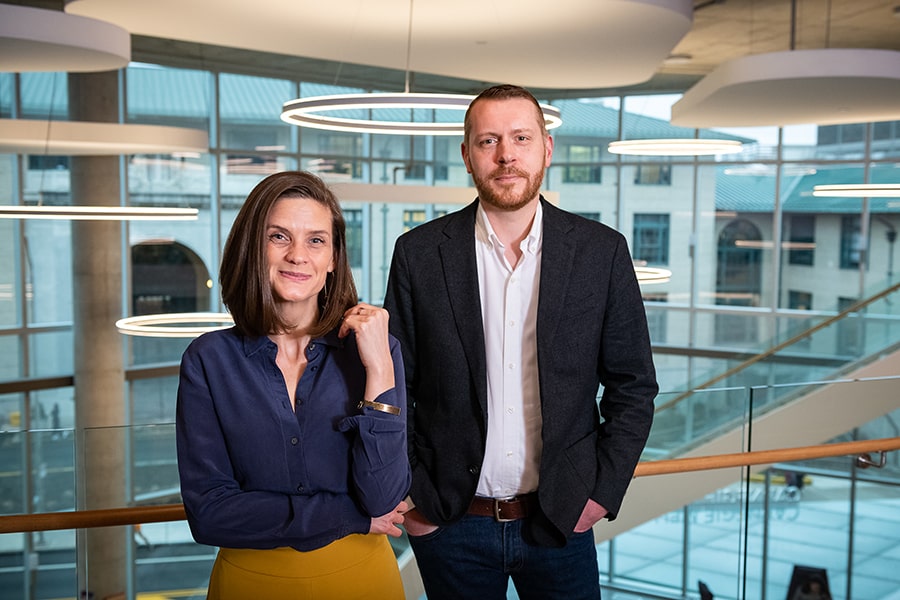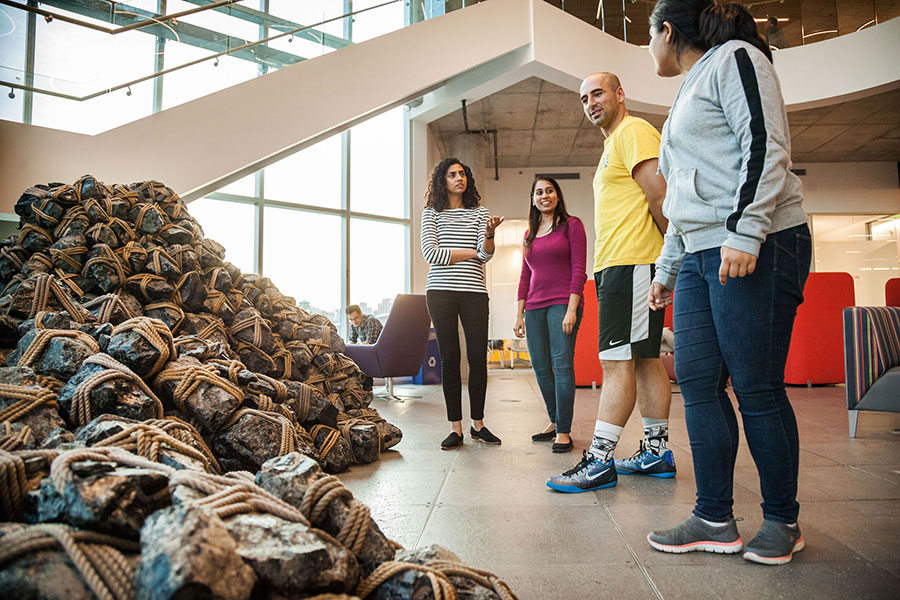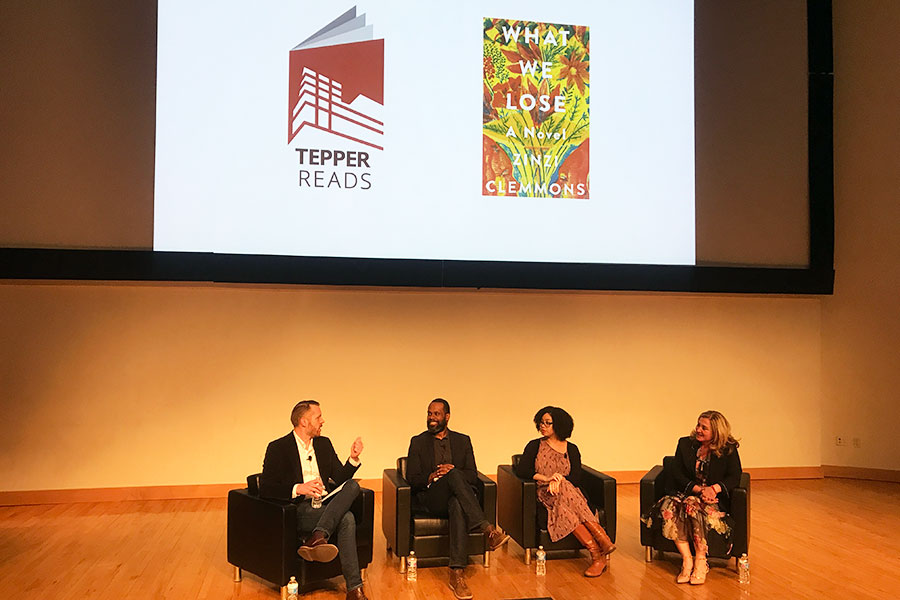
Two MFAs Are SHIFTing the MBA Experience
By Katy Rank Lev
Michelle Stoner and Matthew Stewart are the perfect complement to an MBA curriculum that fosters empathy and self-reflection.
When Michelle Stoner applied for her job in the Tepper School of Business, she assumed it would be a day job to pay the bills. Like many poets, Stoner thought she'd have to pursue her creative outlets in her spare time. Instead, her position with the Accelerate Leadership Center has fulfilled her in ways she never imagined.
"My job has shown me what life can be like if you're doing work that feels purposeful," Stoner said.
Her collaborative partner, Matthew Stewart, has much the same outlook. His background in creative nonfiction writing seemed in opposition to an administrative role within a business school.
Immersive Experiences in Art Shape Leadership Skills
As it turns out, Stoner and Stewart, who earned their master’s degrees in fine arts (MFA), are the perfect complement to an MBA curriculum that fosters empathy and self-reflection.
"Research shows us immersion in the arts is one of the best ways to teach empathy and critical thinking," said Leanne Meyer, executive director of the Tepper School’s Accelerate Leadership Center.
To shape those immersive experiences, Meyer needed staff with a creative background.
"For me to have Matthew and Michelle's tremendous input on this programming is invaluable," Meyer said. "I can't appreciate art in the same way they can. They make what we do here so much richer."
Stoner and Stewart lead the SHIFT program, funded by a grant from the Citrone Family. SHIFT offers MBA students a pathway to adopt leadership skills of empathy, critical thinking and self-awareness through activities such as poetry workshops, improv classes, or even trips to an art museum.

SHIFT art exhibit Emergence: Held Together by Rachel Mica Weiss.

Tepper Reads event with Zinzi Clemmons.
Adjusting Perspective in a Changing World
Stewart explains that SHIFT isn't an acronym; it's a worldview.
"SHIFT is the idea that we can all adjust our perspective. The world is changing and the profile of an ideal business leader is, too," he said.
"I've never been so satisfied in my work,” Stoner said. “I get to guide these laser-focused business students through new ways to look at a piece of art, and it's building community for them in ways that give me chills."
Stoner said she has witnessed students from around the world come to realize there is more than one way to see a painting. "Being there for that epiphany was the most rewarding thing I can possibly think of,” she said.
Stewart has had similar feelings leading the Tepper Reads Book Club. He puts together a podcast and discussion sessions, and at the end of the year, brings the author to campus.
"The research shows that reading fiction increases empathy, and it works so well with our students,” he said.
Last year, when students read “What We Lose” by Zinzi Clemmons, they gathered to discuss the book's themes of emigration from South Africa. This led to discussions of diaspora and MBA students from different countries shared their experiences leaving home to live and study in the United States.
"Students realized they feel certain ways when reading, all because of something like setting. It opened their eyes to different ways to discuss a piece of writing," Stewart said.
Art Discussion Creates Space for Low-Stakes Debate
Stoner said one of SHIFT's most impactful interdisciplinary collaborations has been with the Miller Institute for Contemporary Art, which curated an exhibit to display in the Tepper Quad. Stoner placed discussion questions throughout the lounge space for MBA students to engage in low-stakes debate.
"We asked the students to talk about the art in a way where nobody has anything to lose," Stoner said. "The art isn't going to get offended, so they can practice disagreeing with each other. This is a skill that's crucial for the workplace."
Tepper students are loving the creative outlets.
Stewart recently met an MBA student on the bus after a long day on campus. He was surprised to see the student's face light up in recognition.
"He told me SHIFT was the most human part of his MBA experience so far and that we had to keep offering this programming," Stewart said. "That felt really good to hear."

